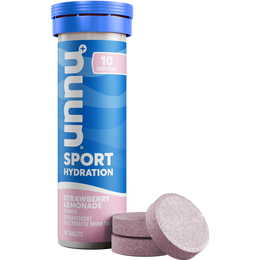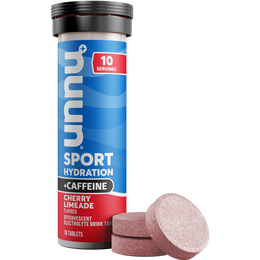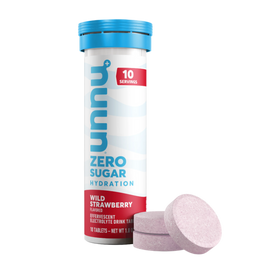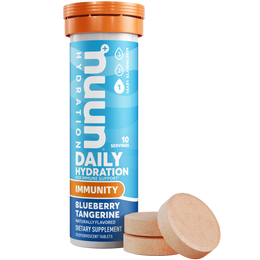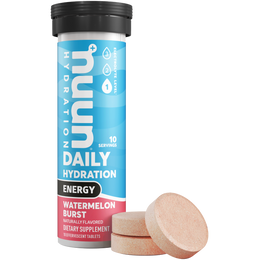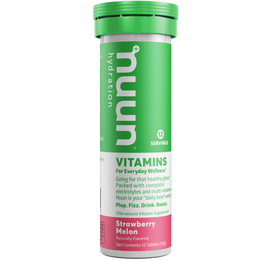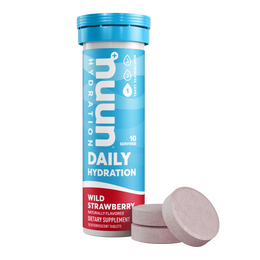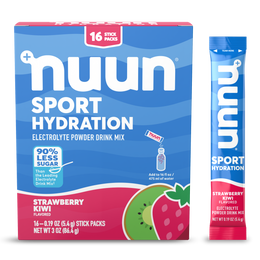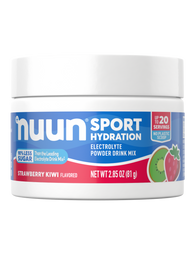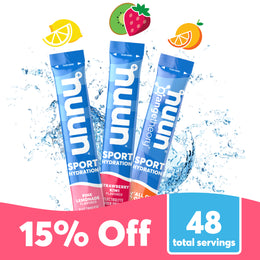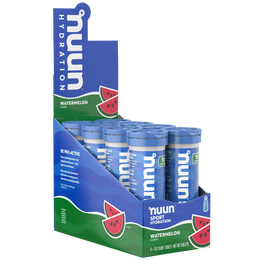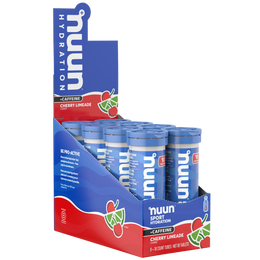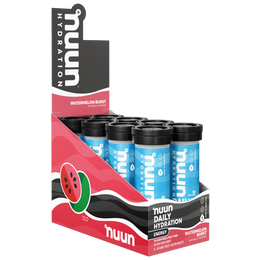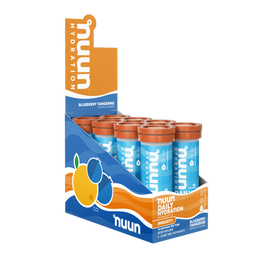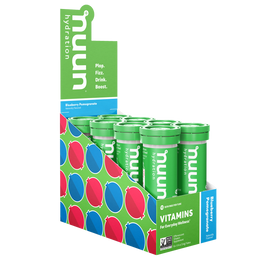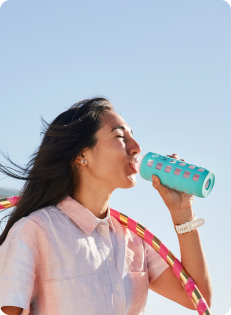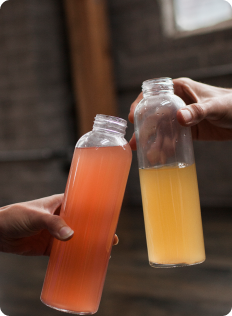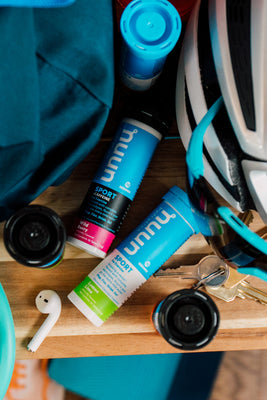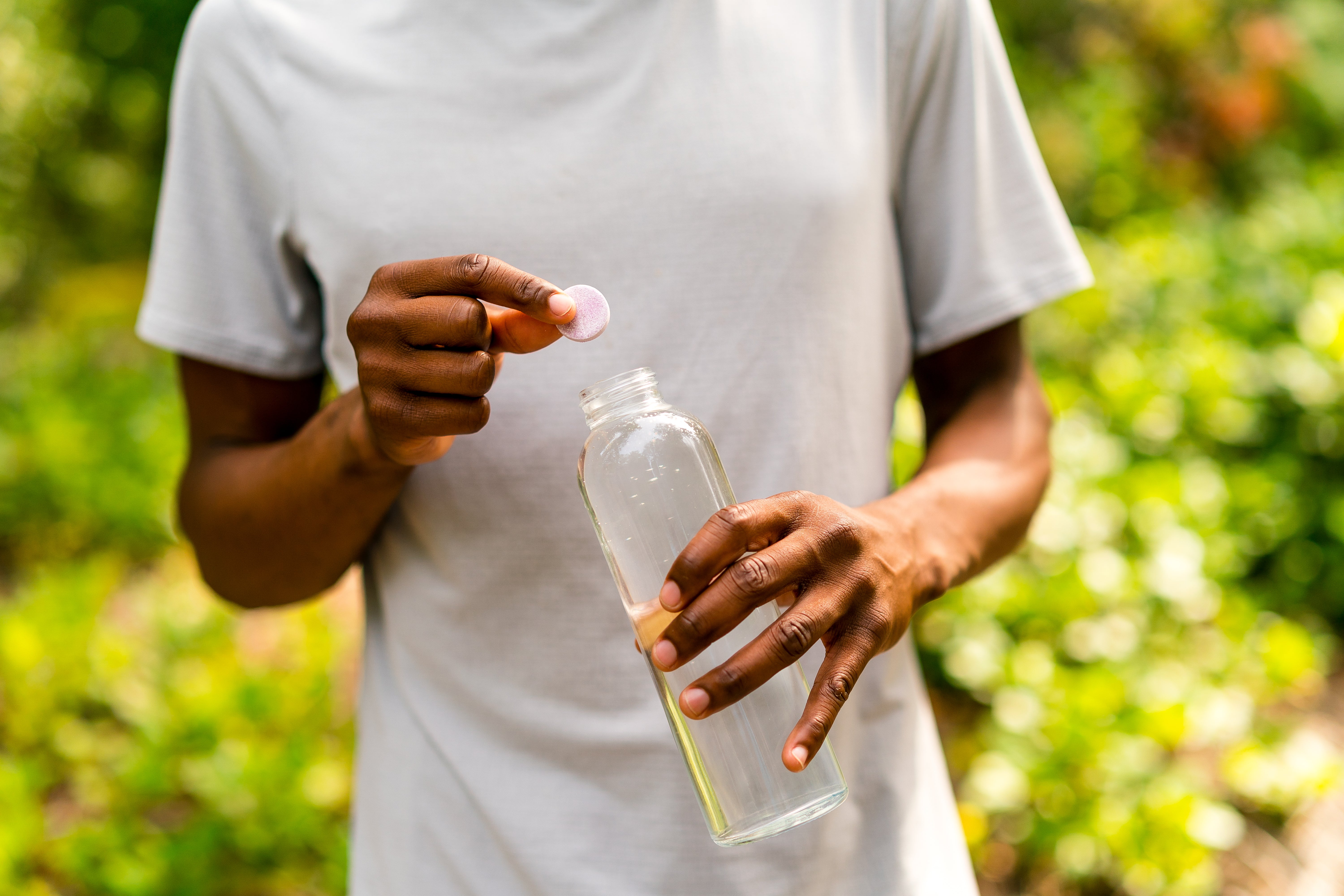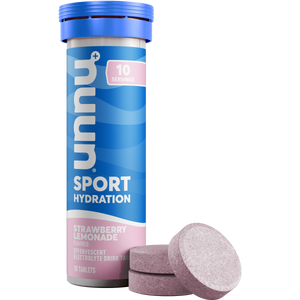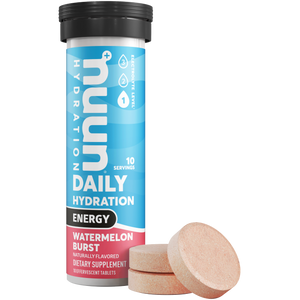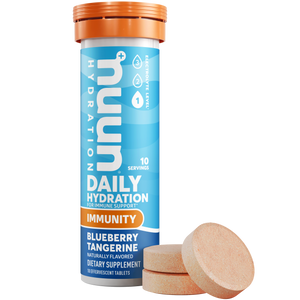Boosting Your Immune System, Naturally

Guess what--the little stresses of everyday life take a serious toll on our bodies…and especially on our immune systems. Dehydration, lack of dietary nutrients, lack of sleep and stress (mental and physical) are all examples of ways that our immune systems can become weakened and vulnerable. A healthy immune system is absolutely essential for overall wellness…yet the inner workings of our immune defenses are a total mystery to most.
As a quick crash course: our immune systems are a network of cells, tissues and organs that fight back against invaders like viruses, bacteria and germs. Proactive maintenance of our immune systems is a daily practice and requires much more than just Vitamin C and antioxidants. Consider the ways that you keep yourself physically fit: it requires daily practice and effort. Similarly, we can keep our immune systems “fit” every day (not just during cold and flu season) through consistent and holistic upkeep.
In this article, we will demystify the functions of immune system health and discuss 3 simple daily habits to boost your immune system naturally.
Keep Moving!
Consistent, moderate exercise is essential in keeping our defense systems in good health. Regular exercise flushes fresh, oxygenated blood flow throughout the body, which helps to power up our immune defenses. How so? When immune cells are mobilized by our increased blood flow they ramp up into “defense mode” as they recirculate between the blood and tissue. This primes our body to guard against any foreign invaders and attack efficiently. Exercise Immunology scientists, Neiman and Wentz, claim that,
“The immune system is very responsive to exercise, with the extent and duration reflecting the degree of physiological stress imposed by the workload.”
What this means is that exercise and immune system functions are very closely intertwined, but there is a threshold at which the body switches from primed-and-ready-to-defend vs. immune-system-vulnerable. The key is finding the balance between enough exercise that will create resilience vs. overworking the body into immune deficiency.
So, what does that exercise threshold look like?
What it comes down to is this: when we exercise, we are voluntarily stressing our bodies. Our immune systems are sophisticated enough to respond to this stress, but endured stress is only sustainable for our defense systems up to a certain volume. Every moving body is different and has a varied tolerance to exercise but according to an exercise immunology study conducted by Neiman and Wentz, there are a couple of general golden rules that we can follow for good measure. For the sake of committing to memory, let’s call it the 60/60 rule. The 60/60 rule points to research that demonstrates positive immune response in athletes up until they have surpassed 60-minutes of exercise at a sustained heart rate of 60% of their max HR. The graphic below is an easy guide for whether your planned workout is going to be immune-boosting or immune-hindering:
Based on these findings, the average immune system recovery time for an athlete that exceeds the 60/60 rule can range anywhere from a couple of hours to a couple of days. For times when immune defenses are top of mind, our recommended workouts for the protection of our immune systems are:
- A moderately paced run or bike ride under 60 minutes
- A very low effort walk/hike if you’d like to enjoy more than 60 minutes of movement
- A 30-45 minute HIIT workout
- A 45-60 minutes of strength circuits
Hydrate! Hydrate! Hydrate!
Does drinking water boost our immune systems? The facts are in: the baseline of a healthy immune system is hydration. Staying hydrated is our ultimate secret weapon for naturally defending against illness.
But why? But how? Talk Nerdy to me!
Alright, you asked for it. There are two primary pathways by which immune cells circulate and activate in our bodies: the blood stream and the lymphatic system. Our blood stream helps to distribute these cells and to deliver fresh oxygen to the tissues and organs that help support our overall immunity. Lymphatic vessels are designed to remove waste from our bodies. They provide functional support and pathways for the swift disposal of foreign invader cells to drain out through our lymph nodes. This process allows the body to flush out the potentially harmful substances.
So, where does hydration come into play in all of this? Well, both the blood stream and lymphatic system are fluid-based systems. They both rely on a healthy and regular source of fluid intake in order to carry out their functions.
To ensure proper hydration, electrolytes are essential. Water can very easily flush through our systems, without absorbing into the bloodstream where it has the most benefit. Electrolytes assist in the absorption process and help to ensure that our H2O consumption is optimized. For best practice, make sure to follow these following hydration tips:
- Drink .5-1 full fluid oz. per pound of body weight on the daily. (For example, if you weigh 160 pounds, aim to drink 80-160 oz. of water per day)
- Make sure that at least a quarter to half of those fluid ounces include electrolytes
- Drink slowly and consistently throughout the day. Trying to “bank” fluid consumption by chugging fluids will lead to less absorption and more trips to the bathroom!
Prioritize Your Sleep
Studies have shown that people who are lacking in hours or quality of sleep are much more likely to contract an illness when exposed to germs. During sleep, our body produces immune-system-defending-cells called, “natural killer cells”, or “NK Cells”. NK Cells are rapid responders to any internal viral or bacterial cells and play a pivotal role in fighting off everyday illness. A study by Dr. Michael Irwin showed a 70% drop in NK cell activity in individuals who were restricted to 4 hours of sleep over the course of one night. This level of cell activity is considered immune deficient!
While this noteworthy, the even more alarming issues present themselves when the pattern is repeated. Long-term sleep deprivation has been linked to more serious diseases like obesity, diabetes and hypertension. Sleep is one of our ultimate health & wellness champions!
There you have it! 3 easy habits to prioritize in order to boost your immune system. Remember, our immune systems rely on consistent and diligent maintenance in order to “stay fit”, so keep these pointers in mind on a daily basis in order to make sure you’re protecting your health for the long term!
